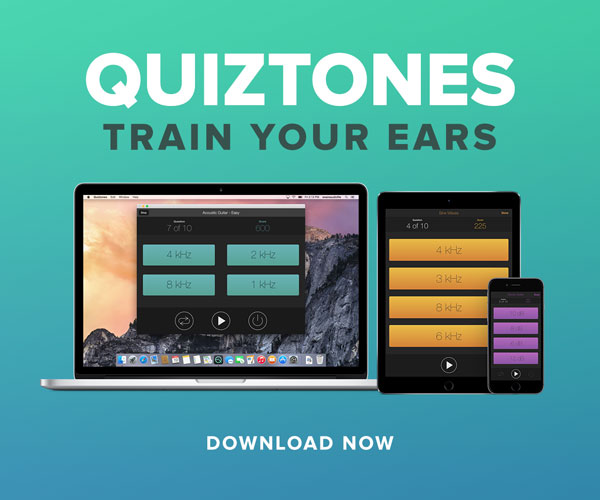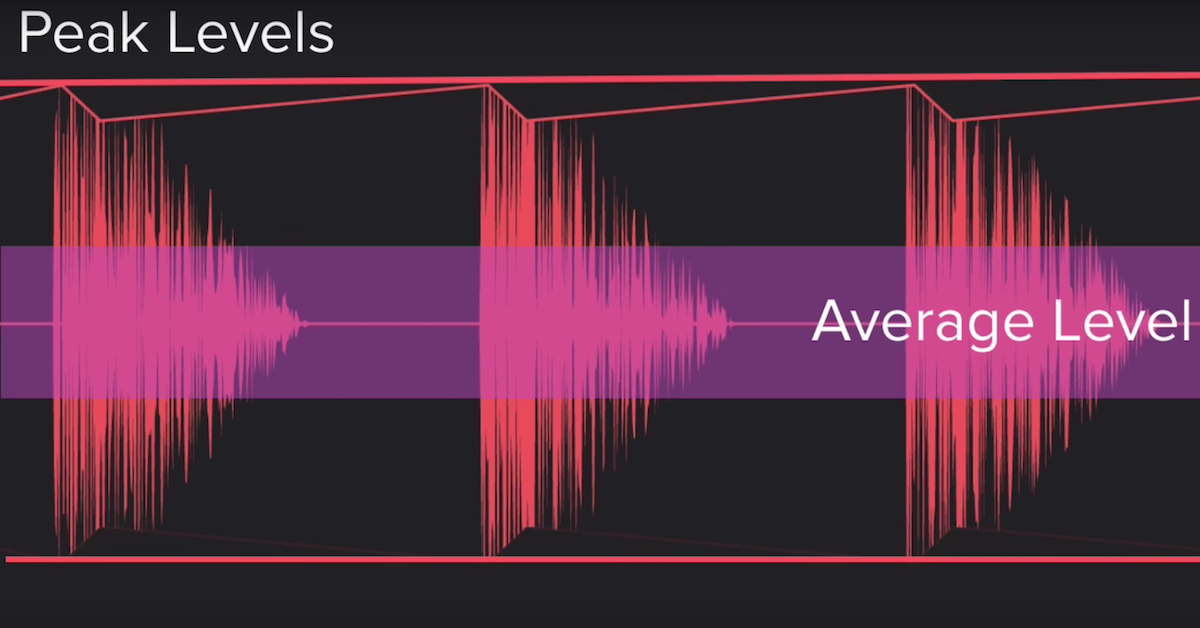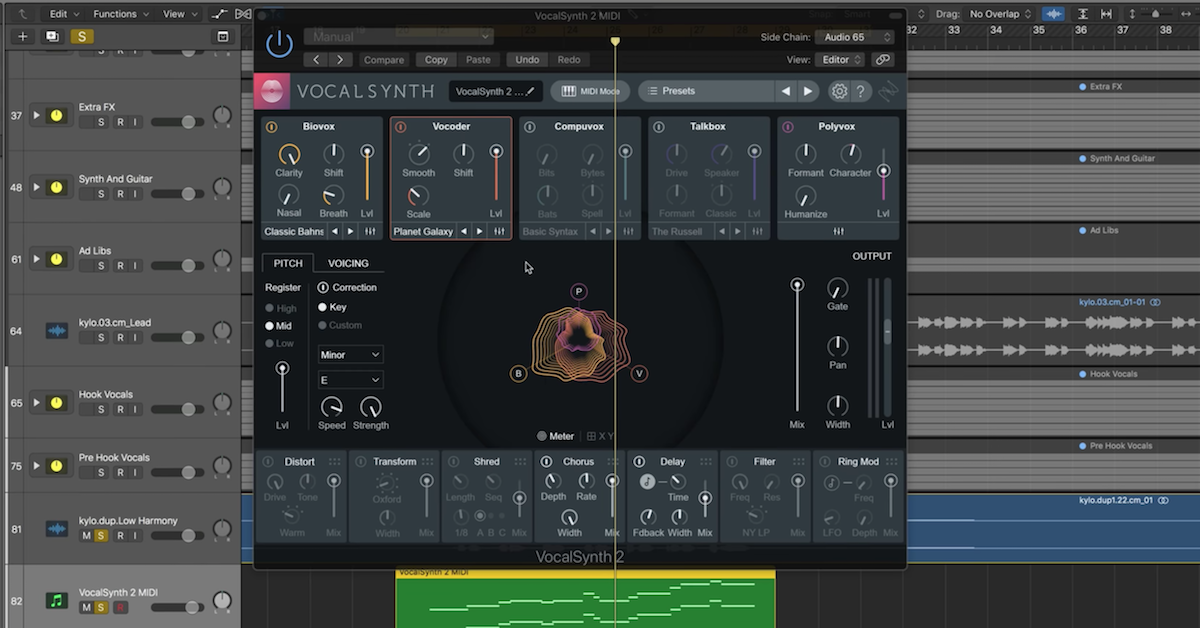Sound Pressure Levels (SPL) – Part 1 of 2
Article Content
In this article I’ll be looking at the various sound pressure levels that we are subjected to, and that we subject ourselves to, and discuss the dangers that they present.
Intro
The decibel, or dB, has lots of different incarnations like dBu and dBV however when most people talk about dB they’ll almost always be referring to dBSPL which refers to sound pressure 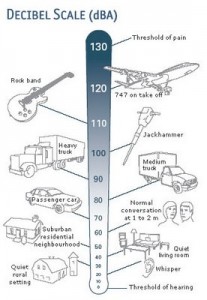 level. This is quite literally the pressure a sound wave exerts on our ears and uses the SI unit pascal. Scientifically the minimum pressure is at 0 which is where our hearing threshold is located 20 µPa RMS, however this is at 1 KHz, and the minimum would be different at other frequencies. Something I myself found out while researching for this article is a theoretical maximum due to the Earth’s atmosphere. I’m no physicist so I’m not going to get into the science of the how’s and whys but I can tell you the theoretical maximum for Earth is an astounding 191 dBSPL. If something was to make this noise and you were anywhere near it you can be sure to lose your hearing and I doubt that would be the only physiological effect. What I will be talking about is what levels should be considered dangerous, and then some of the actions we regularly partake in that expose us to these levels.
level. This is quite literally the pressure a sound wave exerts on our ears and uses the SI unit pascal. Scientifically the minimum pressure is at 0 which is where our hearing threshold is located 20 µPa RMS, however this is at 1 KHz, and the minimum would be different at other frequencies. Something I myself found out while researching for this article is a theoretical maximum due to the Earth’s atmosphere. I’m no physicist so I’m not going to get into the science of the how’s and whys but I can tell you the theoretical maximum for Earth is an astounding 191 dBSPL. If something was to make this noise and you were anywhere near it you can be sure to lose your hearing and I doubt that would be the only physiological effect. What I will be talking about is what levels should be considered dangerous, and then some of the actions we regularly partake in that expose us to these levels.
Danger. Danger. High Voltage.
So just what is a dangerous sound level for our ears? The answer is highly varied, but is highly dependent on time. You might think a gun being fired close by to be a dangerous sound level but that is less than a second’s exposure to something that loud. Something lower in sound level but longer in time could be much more damaging. On the right is a table most people seem to have been shown, but no one seems to see, if you do recognize it then my apologies, but you can use it for easy reference in the article.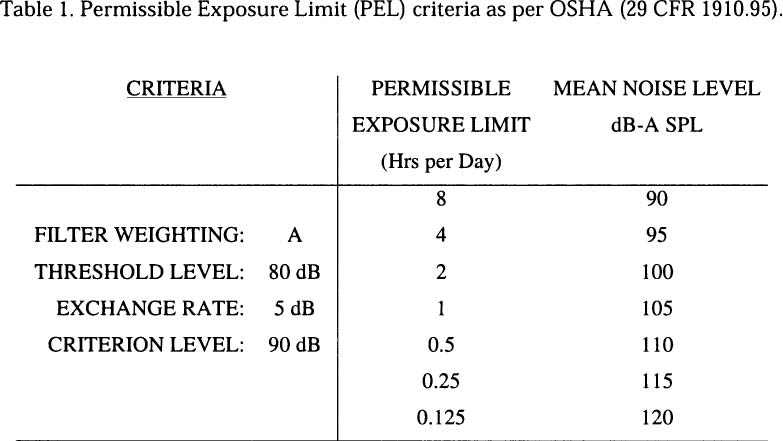
For those of us working in the audio industry and particularly in sections like FOH and even mixing it’s important to take note of this table. It might impress the customers/clients if it’s nice and loud when they turn up, but if you only get 2 years of work before damage is caused, you’ll wish you’d worn some hearing protection. However, this table is only a guideline, and certain people are affected differently. Some people will go through life putting their ears at risk and be lucky enough to not have their hearing damaged. There is a risk that going past these guidelines just once could do some sort of permanent damage; the likelihood for most of us however is likely to be somewhere in the middle.
Tinnitus
The risks will of course bring us to the Sound Engineers biggest enemy: Tinnitus. I imagine that almost everyone in the western world knows someone who has some sort of tinnitus problem, whether it’s a friend or relative. We all know someone who gets a ringing in their ears or has had to stop drinking coffee or something similar. As a sound engineer you yourselves will probably have experienced it at some point or perhaps you’re unfortunate enough to suffer a higher level of problems. There are 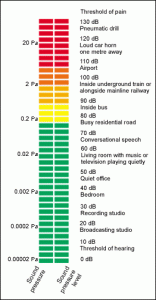 plenty of resources out there about Tinnitus and the symptoms – including ways to ease the problem – but remember there is no cure, it is an issue of permanent damage. Everyone reading this article who’s ever been to a rock concert (I say rock concert though I imagine main-stream acts are just as loud) will have come back with their ears ringing and their hearing dulled. I myself have spoken to people the day after that have said ‘it was a great concert, my ears are still ringing’. As if the fact my ears are ringing meant the performance or sound quality was good. This was in the day of standing tickets and getting to the very front of the arena. Nowadays I tend to just buy seating and honestly don’t mind being near the back as I can enjoy the show without anywhere near the level of ringing afterwards. That ringing is your ears way of telling you that something bad happened and to try and avoid that again, it does go away, but it is likely something has happened. It may be to a small degree and hardly affect you, but it could be the start of a serious issue in the future.
plenty of resources out there about Tinnitus and the symptoms – including ways to ease the problem – but remember there is no cure, it is an issue of permanent damage. Everyone reading this article who’s ever been to a rock concert (I say rock concert though I imagine main-stream acts are just as loud) will have come back with their ears ringing and their hearing dulled. I myself have spoken to people the day after that have said ‘it was a great concert, my ears are still ringing’. As if the fact my ears are ringing meant the performance or sound quality was good. This was in the day of standing tickets and getting to the very front of the arena. Nowadays I tend to just buy seating and honestly don’t mind being near the back as I can enjoy the show without anywhere near the level of ringing afterwards. That ringing is your ears way of telling you that something bad happened and to try and avoid that again, it does go away, but it is likely something has happened. It may be to a small degree and hardly affect you, but it could be the start of a serious issue in the future.
In the second part of the series I’ll discuss a few examples of things that we subject ourselves (and are subjected) to in everyday life.

